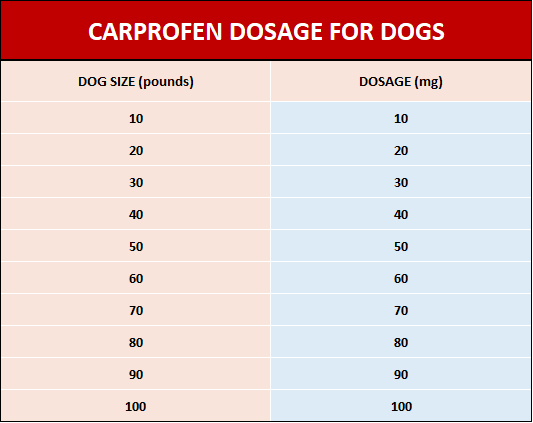Carprofen for Dogs - What Vets Don't Tell You
05.04.2021.
When it comes to taking medications, we usually take time to check potential side-effects and the long-term effects drugs will have on us. However, most of us rarely bother looking at the same thing when it comes to our dogs. One of these drugs we should look closely at is carprofen for dogs. If your vet prescribed your dog with drugs containing carprofen, the first thing you should do is call their office and ask for clarification. In the meantime, here is what you should know about carprofen for dogs.
What is carprofen for dogs?
Carprofen is a medication vets prescribe for dogs to treat pain and inflammations. Carprofen for dogs is sold under the brand name Rimadyl. This medication is an NSAID or nonsteroidal anti-inflammatory drug used for treating pain in dogs. It is supposed to treat inflammation without all the negative side-effects that come with using steroids.
One of the reasons carprofen is a commonly prescribed dog painkiller is because it is supposed to be safer to use than human NSAIDs like ibuprofen, aspirin, or naproxen. You should never treat your dog with drugs you use. Human medications can have severe consequences for dogs. Sometimes, human medications are prescribed for off-label use. In those cases, you must follow the vet’s instructions to the dot.

Carprofen for dogs, or Rimadyl, comes in three forms. It would be best to talk to your vet about what type will be the best option for your dog. The available forms of carprofen for dogs are - caplets, injections, and chewable tablets. Of course, the injection version can only be administered by veterinarians.
Why is carprofen prescribed for dogs?
If your dog gets a prescription for carprofen or Rimadyl, you should call your vet and ask for a bit of clarification. This is a powerful painkiller that is usually prescribed in two cases;
- Dealing with chronic osteoarthritis pain in dogs,
- To deal with pain and inflammation in dogs after surgeries.
This is an effective and potent medication that you should not take lightly. If the vet prescribed carprofen for your dog, that means your dog is in some severe pain. However, the good news is that carprofen is an effective pain killer with three main things it can do for your dog. Carprofen will reduce inflammation, reduce pain, and reduce your dog’s fever. That makes carprofen for dogs an excellent choice for a long-term arthritic medication for your dog.
You can read more about arthritis here - Arthritis in dogs.

Post-operative prescription of carprofen for dogs is usually only for short-term use. It will reduce the inflammation caused by surgery. The analgetic properties this drug has will make your dog feel a lot more comfortable. If you have additional questions about why your vet prescribed carprofen for your dog or your dog’s condition, talk to your vet and ask them to tell you what is going on with your dog.
If you want to know more about osteoarthritis in dogs, check out this article - Osteoarthritis in dogs.
Carprofen side effects
The thing that makes carprofen for dogs such a debatable drug is its side effects. Most of them are connected to the dog’s gastrointestinal tract. The carprofen side effects can be more or less severe. Still, if you notice any of them, you should call your vet and ask them if they believe you should continue treating your dog with carprofen. Here are some of the most common side effects dogs have on carprofen;
Kidney and liver carprofen side effects are rare. Still, these organs should be monitored constantly to make sure the drug doesn’t have a negative impact on them. This is especially true for dogs that are using carprofen long-term. Some of the more severe side effects of carprofen that should worry you and your vet are;
- Loss of appetite
- Blood in the dog’s stool
- Behavior changes (Aggression, activity changes, loss of coordination)
- Seizures
- Changes in water intake
- Changes in urine (discoloration, smell)
- Skin issues
- Jaundice (yellowing of the skin, gums, or redness)
If you notice any of these carprofen side effects, you should call your vet immediately and ask for advice.
Carprofen for dogs - dosage
The exact carprofen for dogs dosage will be determined by your vet. They will consider your dog’s age, health, activity levels, and many other things. Based on these things, the vet will recommend a dosage for the maximum effect. The usual practice and the usual dosage of carprofen for dogs is 1 mg per one 1 lb of body weight. The medication is given every 12 hours. If this confuses you, here is a helpful chart of the usual carprofen for dogs dosage;

If you are worried about your dog’s long-term health, talk to your vet. Ask about the positive and negative sides of treating your dog’s pain with carprofen, and ask if there are any safer alternatives. If you want to know more about painkillers for dogs, check out this article - How to treat pain in dogs?
World Dog Finder team







Share